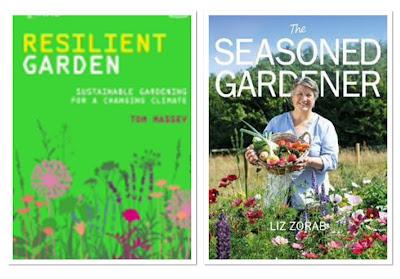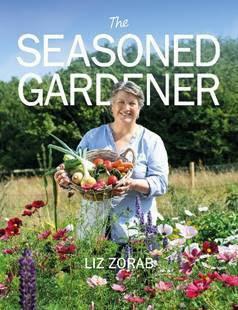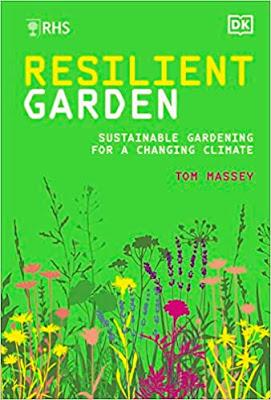I was keen to review these two new books, they both add to our knowledge about organic and sustainable gardening. Both have the health of our planet at their heart and how we can improve our gardens and gardening practice.

I have not paid for these books and I have not been paid to write these reviews. My words and opinions are as always my own.
The Seasoned Gardener by Liz Zorab
I could tell you that this book is a month by month account of how to grow vegetables and this would be accurate, but it is totally inadequate to explain what Liz is doing through this book. I could also tell you that this is a well thought through and detailed book about how to grow vegetables and this too would be true and yet insufficient. This is a personal book where Liz talks us through how she created, with Mr J, their garden at Byther Farm. Liz speaks honestly about what has worked well, not so well and also the bits that she enjoys about gardening and the bits she does not. I mentioned earlier that it was a month by month account and Liz starts us off in September, which is a good month to start. It is still in the growing period where veg can be harvested, started off and also getting ready for prepping for the winter months. This seems an excellent time to start such a book as if the book began in January there is less practically to be done making it not so interesting/motivating for the novice reader. On saying this Liz actually gives us a goodly list of seeds to sow and things to do in January. But starting in the Autumn is a good natural place for prepping the space ready for a new season of growing.
This is not a book aimed at novices, but a veg-novice would learn a lot of good friendly, realistic and knowledgeable advice from it. An experienced gardener can also learn a lot from Liz's wise words. All readers I think would enjoy Liz's conversational style of writing. There was much I could identify with and lots of tips that I have noted. I found it interesting in the section about Kale growing where Liz states they are not great fans of the taste but find it useful to grow for food for their hens and also for the wildlife in their garden. Not all vegetables have to be grown for human consumption! I also found the section on bees very identifiable with. Liz does keep bees on the farm, but like myself, is not keen at being close to them. I would love to keep bees but I am irrationally scared of them so I know it just would not work. So I admire Liz for being able to actually keep bees. Very apt at the time of writing is the section on No Mow May. Liz and Mr J decided to leave an area of grass to grow through May with just paths cut through it. As May ended they decided not to cut just yet and soon it was early Autumn and they needed to consider how to cut the long grass. I do not follow No Mow May as such as I do not mow a third of my garden for the majority of the year; so I know how delightful the long grass and the flowers that appear through it can be. It makes this part of the garden in particular a fabulous resource for wildlife. Of course, I like this in the book because I do it too, don't we all like books that agree with us?
This is an excellent book and I can happily recommend it.
RHS Resilient Garden by Tom Massey
Tom Massey is an award winning garden designer, he won an RHS Gold Medal for his garden at RHS Chelsea Flower Show 'The Yeo Valley Garden' in 2021. A garden I enjoyed at the time and I visited the actual Yeo Valley Garden last year. This is just one of the awards Tom has won.
This is Tom Massey's first book and climate change is something that clearly matters a lot to him. It is a great piece of work, talking us through the science and the practicalities of gardening more sustainably. The evidence base for this book is from RHS research into climate change. Tom uses this and his own design knowledge to advise on how we can create more sustainable gardens from reducing hard-scaping to considering peat-free compost alternatives.
There are suggestions about materials to use, both traditional and innovative. There are also plant suggestions and useful case studies that help demonstrate the points that are being made.
The use of graphics and diagrams in the book really help us visualise the knowledge that Tom is sharing. I like that Tom takes the time to explain and depict what climate change is, there are no assumptions made. There is also a very useful glossary and further reading provided at the end of the book. This book is a must for any gardener who is interested in climate change and how we can all play our part in supporting the planet.
What makes this book on a different level though is that you can scan a QR code and you are taken on a virtual tour of the garden Tom created for the book. This is brings the book to life, helping us see the outcomes of putting the research findings into practice. Tom guides us through the tour and it is a really an effective idea (though obviously you do need to be able to scan QR code to take advantage of this). I enjoyed exploring the different elements of the garden and seeing the contrast of 'before and after'.
RHS The Resilient Garden by Tom Massey is published by DK Books

